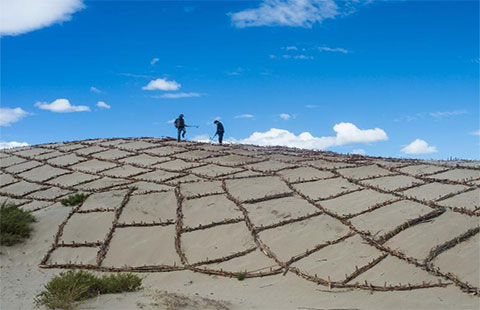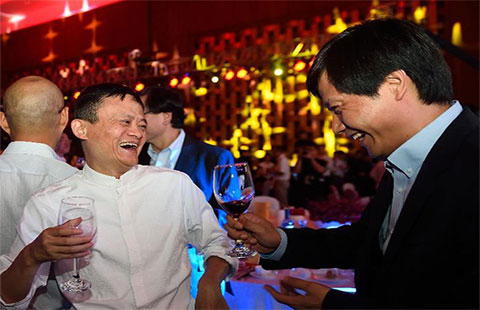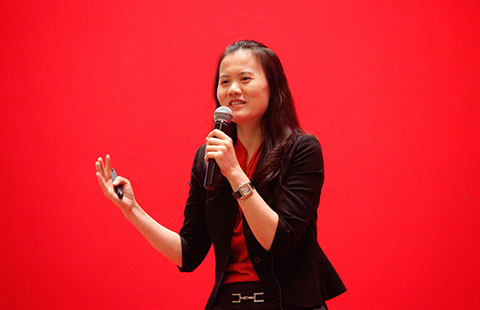

Output in world's second-biggest economy is facing downside risks
China's economic downside risks have been aggravated by slowing expansion in the manufacturing sector and weak market demand, which is reinforcing expectations of more decisive easing actions from the government.
In May, expansion of the manufacturing sector cooled to its slowest in five months, with a lower-than-expected Purchasing Managers' Index (PMI) dropping to 50.4 from April's 53.3, according to data released by the National Bureau of Statistics and the China Federation of Logistics and Purchasing on Friday.
The PMI in June is likely to fall to less than 50, suggesting contraction in the manufacturing sector.
The latest news from the United States and the eurozone points to increasingly difficult expectations for exports, said Yao Wei, China economist with Societe Generale SA.
"The ongoing easing measures are not strong enough to curb the slowdown in economic growth, and the central bank may consider reducing loan interest rates in the near term," Yao said.
"The sharp drop in May was in line with the overall slowing economic expansion," said Zhang Liqun, a senior economist at the Development Research Center of the State Council.
However, a statement on the China Federation of Logistics and Purchasing website denied that the world's second largest economy is entering a new "decline stage", as the PMI data is still above 50.
Enterprises have felt the pinch of cooling economic growth. Since April, Shanghai-based Guangyu Automobile Air Conditioning Compressor Co has seen a drop in both raw material input and production capacity of about 30 percent compared with March.
The whole industrial chain is facing choppy conditions, said Dong Yaojun, board secretariat of the company.
The company's upstream suppliers, such as aluminum producers, even offered a five-percent discount to stimulate sales in the past two months, he said.
"So far, there's no immediate boost in massive infrastructure construction, which reduced the market need of our buyers, such as truck makers. So we are indirectly affected," said Dong.
Zhang predicted that the production of manufacturing companies may contract in the short term as the new order index - which measures orders for the manufacturing sector, including domestic and export demand - is decreasing quickly, hitting 49.8 in May, compared with 54.5 in April.
In the meantime, the output sub-index - a measure of the total production of companies in the manufacturing sector - declined by 4.3 points to 52.9, while the new export indicator decreased to 50.4 from 52.2, according to the official statement.
HSBC Holdings released its own manufacturing PMI on Friday. The reading of 48.4 in May, down slightly from 49.3 in April, signaled a seventh successive month of worsening conditions in the sector.
Qu Hongbin, chief Chinese economist with the Hong Kong-based bank, said that points to a continuous slowdown of the real economy in the second quarter.
Dow Chemical's Zhangjiagang plant in East China's Jiangsu province has seen no new order growth in the past two months, largely due to the cooling domestic economy and sluggish demand from Europe.
"We saw some growth in the first quarter but things became stagnant in May," said Shu Hui, general manager of the plant.
But Shu stressed the overall healthy condition of operations, saying the firm is actively looking for investment opportunities. One successful case is an ongoing project in Saudi Arabia where the businesses range from oil refineries to plastics, he said.
"Compared with Europe and the United States, China has better chances of coming out of the economic nadir," Shu said as he predicted a series of stimulation plans to be carried out in China over the coming months.
Beijing is organizing a new set of stimulus policies to boost domestic consumption by facilitating investment, a signal that the authorities are turning toward "growth stabilization".
"The decline in the PMI puts more pressure on authorities to loosen policy," said Zhang Zhiwei, chief economist in China with Nomura Securities.
He expected the government to hasten action on the fiscal side, including infrastructure investment, subsidies on consumer goods and public housing investment. At the same time, another 50 basis point cut in the reserve requirement ratio is expected in July.
"If inflation falls to 3 percent or below, we judge that the likelihood of an interest rate cut will rise further," Zhang said.
Inflationary pressure may continue to ease in May, with a forecasted reading of 3.1 percent, according to Societe Generale economist Yao. The National Bureau of Statistics plans to release the data on June 9.
The decelerating trend of China's economy may moderate as the policies come into force, said economists.
They predicted that economic growth may rebound in the second half to more than 8 percent after it hit a low for the year of about 7.6 percent in the second quarter.
Contact the writers at chenjia1@chinadaily.com.cn and hewei@chinadaily.com.cn
 China Intl Cartoon & Game Expo kicks off
China Intl Cartoon & Game Expo kicks off
 Top 5 Red Dot winners: Best designed cars
Top 5 Red Dot winners: Best designed cars
 Fishermen who clean enteromorpha
Fishermen who clean enteromorpha
 Govt Carries out conservation program in Tibet
Govt Carries out conservation program in Tibet
 Business giants celebrate the success of entrepreneurship
Business giants celebrate the success of entrepreneurship
 Top 10 Chinese businesswomen in 2015
Top 10 Chinese businesswomen in 2015
 Female robot sings in Shanghai
Female robot sings in Shanghai
 21st Lanzhou Investment and Trade Fair kicks off in Lanzhou
21st Lanzhou Investment and Trade Fair kicks off in Lanzhou